THE shadow health secretary, Wes Streeting, said pharmacists were key to the modernisation of the NHS as he paid tribute to the sector at the annual Pharmacy Business Awards last Wednesday (4).
Independent community pharmacists were in the spotlight at the event, which recognises the contribution of the sector in healthcare, as more than a dozen awards were presented on the night.
Business leaders from the pharma industry, healthcare executives and leading politicians gathered at the Park Plaza Westminster Bridge in central London to celebrate the achievements of independent pharmacists. Hosted by the Asian Media Group (AMG), publishers of Pharmacy Business, and Eastern Eye and Garavi Gujarat news weeklies, the event was attended by more than 600 high-profile guests.
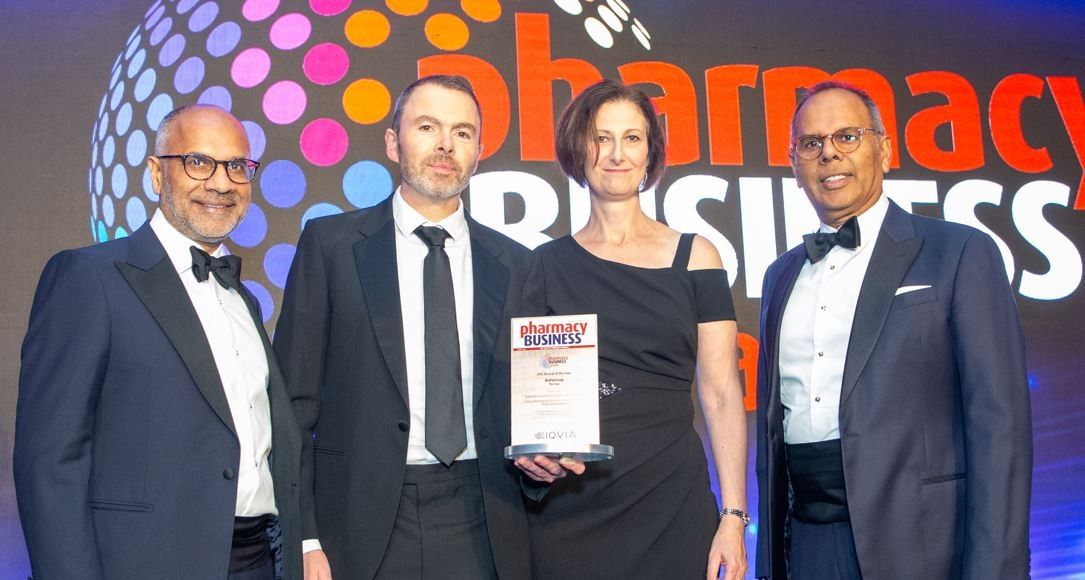
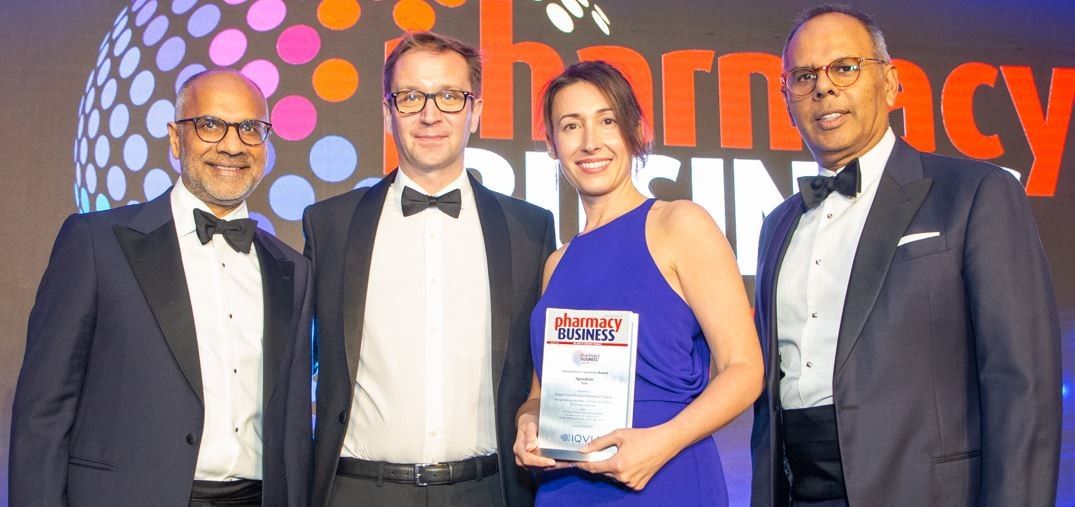
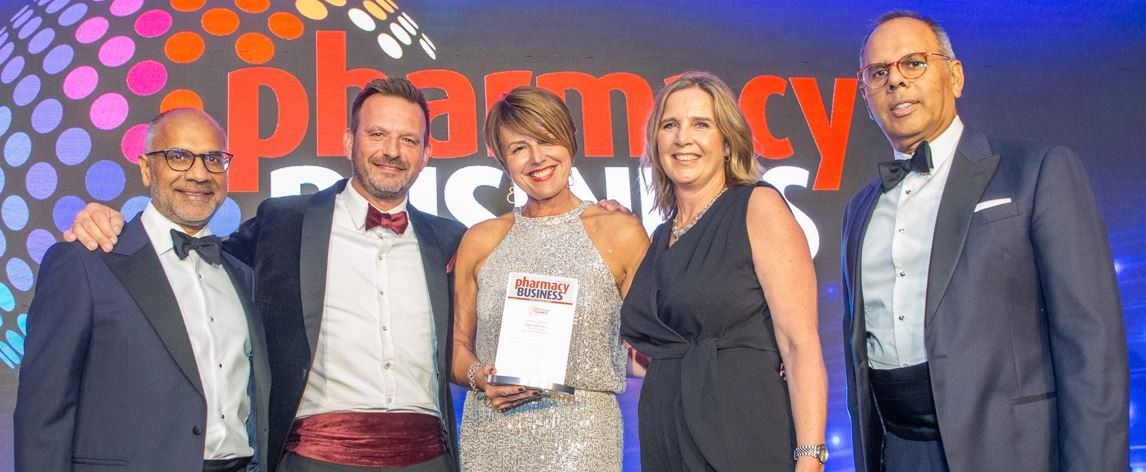
(From left) Shailesh Solanki, Ashley Kilgas from Alliance Healthcare, Deborah Evans, Joanna Beresford and Kalpesh Solanki
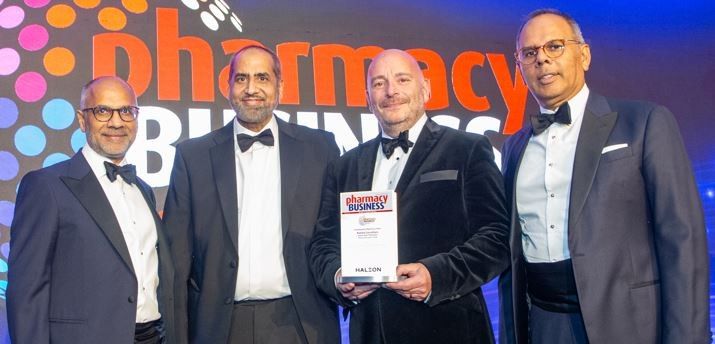
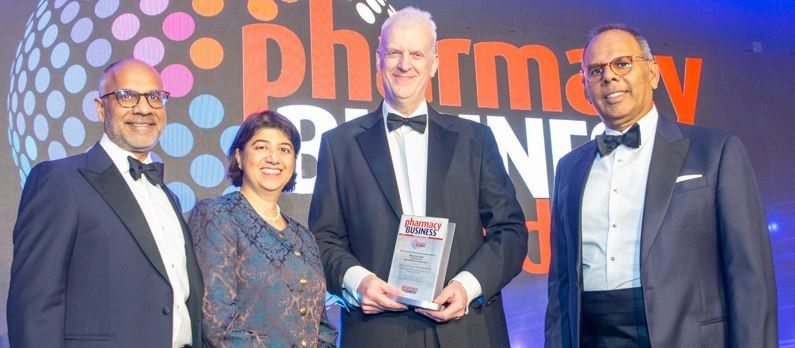
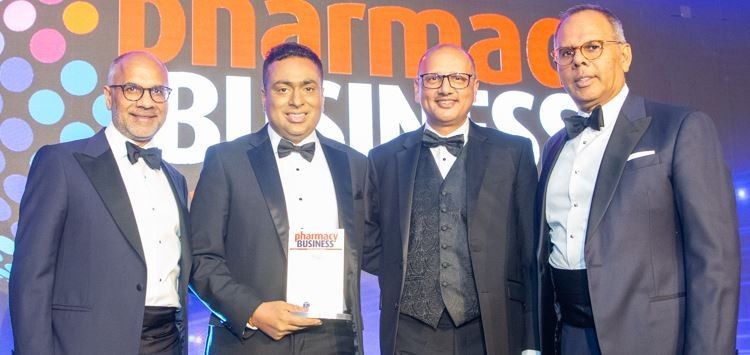

In his keynote speech, the chief guest and Labour MP Streeting said the NHS, which marked its 75th anniversary in July, could once again become the “envy of the world”. He emphasised three pivotal shifts for the NHS – secondary to primary care; from analogue to digital systems; and from sickness-oriented to prevention-focused healthcare. He noted that community pharmacy had an enormous role to play in each of those areas.
Streeting praised the efforts of community pharmacies during the pandemic who “kept (their) doors open to serve the public to make sure (they) provided that vital lifeline. And when the brilliant scientists had their breakthrough in the vaccination, community pharmacy was instrumental in the vaccine rollout, delivering 33 million Covid-19 vaccinations.”
The shadow health secretary added, “We want to work with you to make sure we get the very best of community pharmacy to build the very best national health service possible… because unless we fix the front door to the NHS, and as we go further still and focus on prevention, then we won’t have the NHS as we see it today.”
In his speech, Pharmacy Business executive editor Shailesh Solanki, noted that community pharmacies serve as society’s “bedrock”. Despite being the “front desk” of the NHS, the sector was currently at a “generational inflection point”, he added.
“After years of chronic under-investment, pharmacy finances are in a perilous state. The stark reality is the majority of pharmacies are operating at a loss, and hundreds have closed in recent years,” Solanki said.
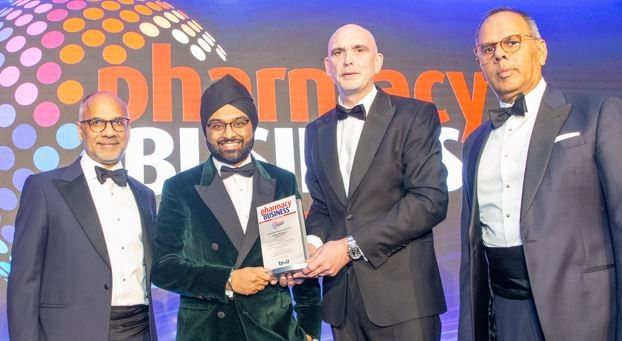
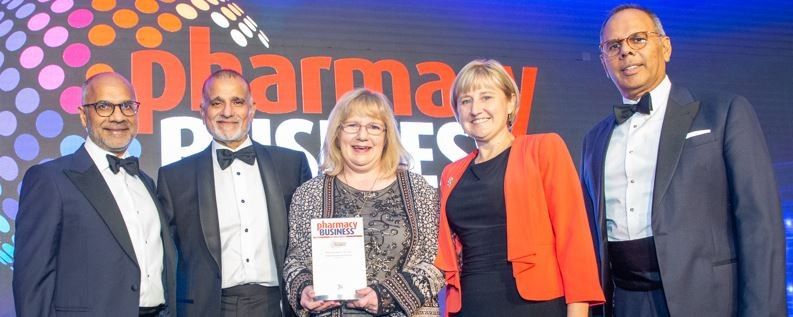
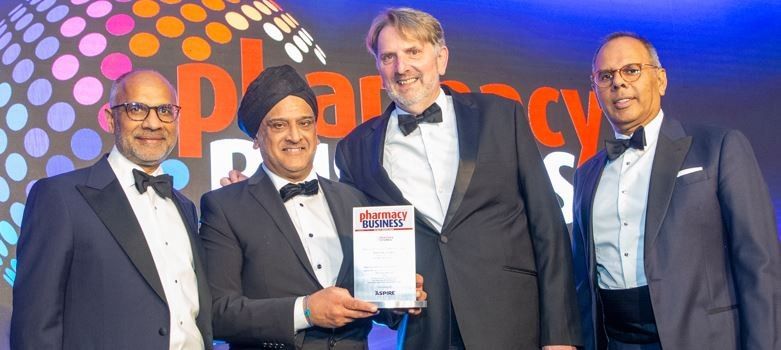
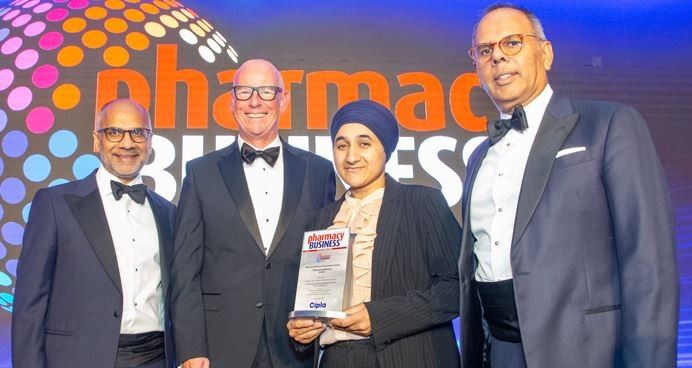
(From left) Shailesh Solanki, Cipla’s Alex Saint, Baljit Kaur and Kalpesh Solanki
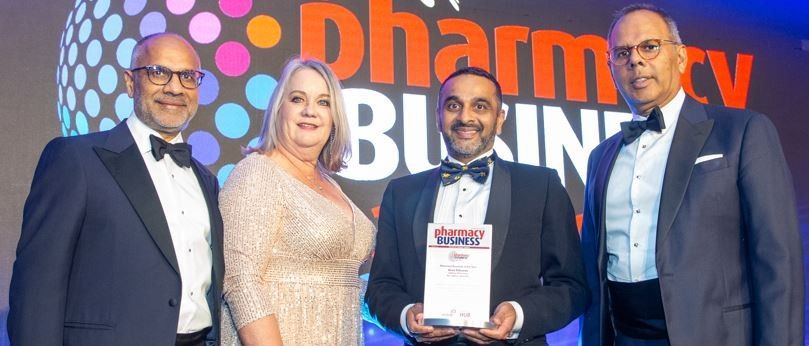
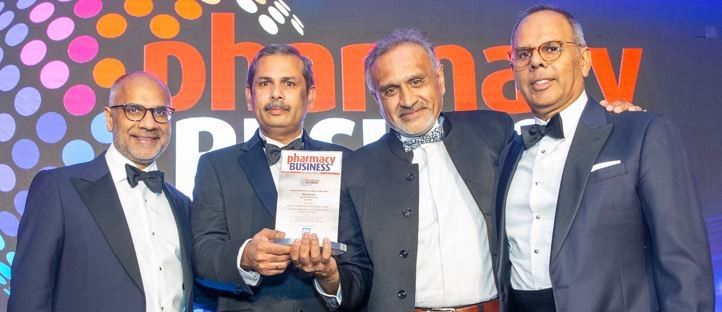
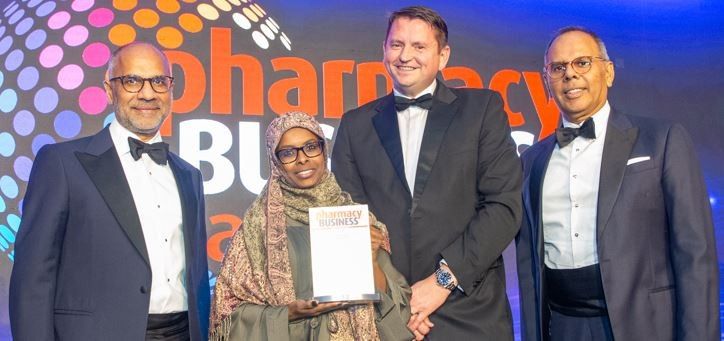
Since the beginning of the year, 296 pharmacies have shut their doors. Multiples such as Lloyds have nearly halved their store estate over the past two years, and Boots recently announced the closure of around 300 stores, he said.
“Pharmacy finances are now at the worst point in the sector’s history. However, there is hope on the horizon.”
Talking about the government announcement of £645 million investment in the long-awaited ‘Pharmacy First’ service, Solanki said the funding was a “welcome boost for the sector, allowing pharmacists to write prescriptions for seven common ailments for the first time, placing the sector at the heart of the NHS and the prevention agenda”.
However, negotiations between the government and community Pharmacy England “have been painfully slow”, he said.
“It remains to be seen how much of the funding will be left to support the bottom line of loss-making pharmacies, as part of it is allocated to other services and IT integration,” he explained.
Following the release of the Nuffield Trust and King’s Fund report, which presented a vision for community pharmacy, Solanki said there was an opportunity for the sector to be reimagined.
“Community pharmacy can help patients manage long-term conditions such as asthma, hypertension, cardiovascular disease, and diabetes. Pharmacy can play an expanded role in the prevention agenda and tackle rising obesity and promote healthy living,” he said.
“It can play a vital role in the early detection of cancer, dementia and other lifechanging illnesses.
“But this advanced role in clinical services can only be developed on the foundation of pharmacy’s vital role in the safe supply of medicines and its crucial contact with patients.”
The event also saw the recognition of independent pharmacies from up and down the country.
The top award, the Pharmacy Business of the Year, was presented to Patrick Gompel of D&M Gompels in Melksham, Wiltshire, for running what judges described as an “outstanding” family business for three generations.
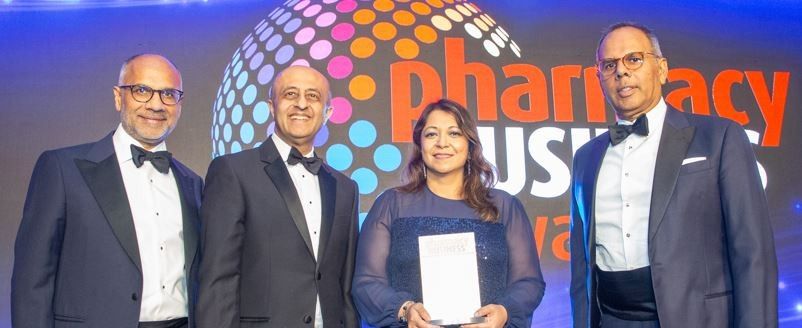
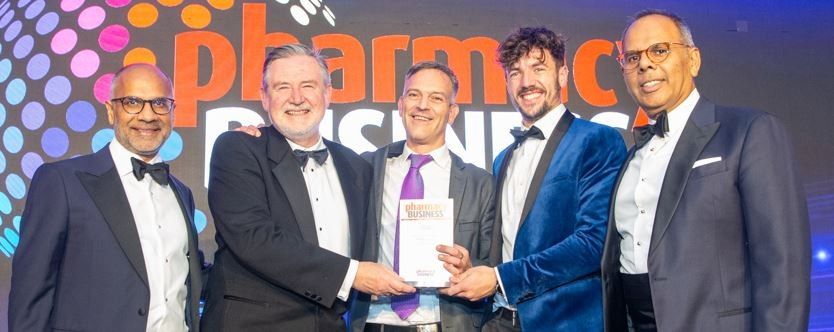
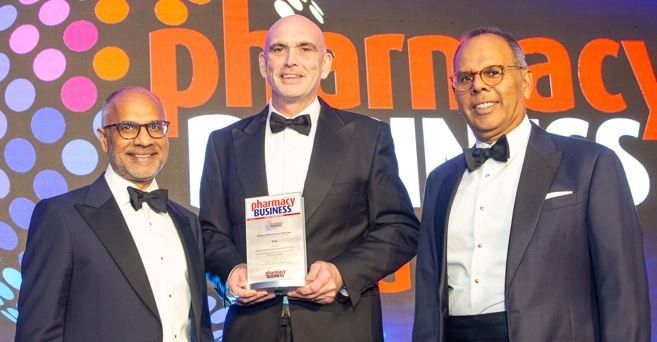
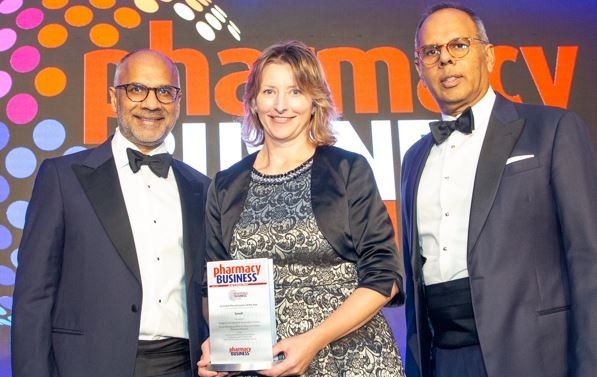
Shailesh Solanki, Sanofi’s Jurga Budriene and Kalpesh Solanki
The pharmacy provides one of the widest ranges of NHS and private services in the country, offering everything from NMS, flu vaccines and minor ailments to micro-suction, dermatology advice and travel clinics.
Their use of technology ensures the pharmacy’s operation is efficient and allows for digital bookings and seamless communication with local GP practices.
The Ram Solanki Lifetime Achievement Award, in honour of AMG’s founder and editor-in-chief, the late Ramniklal Solanki CBE, went to Mark Lyonette, chief executive of the National Pharmacy Association (NPA). Lyonette was recognised for being an advocate of community pharmacy and championing the sector at the highest levels while also drawing on extensive contacts within government.
A new category, the Pharmacy Business Development Award, which was introduced to honour community pharmacists who have demonstrated innovation and entrepreneurial spirit in advancing their practices, was won by Baljit Kaur, owner of Smarta Healthcare.
Davinder Virdee of Pillbox Chemists from Colnbrook, Berkshire, was named Aspiring Pharmacy Leader of the Year.
The Pharmacy Team of the Year was presented to Edwinstowe Pharmacy from Mansfield, while Nemesh Patel of Davies Pharmacy in Havant won Community Pharmacy of the Year.
Guests were entertained by stand-up comedian Joshua Bethania, and also raised funds for Rare Dementia Support Charity.
